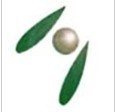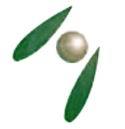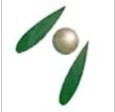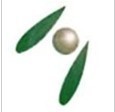
Product Description
Name :Cochineal
Synonyms:NaturalRed4;7-beta-D-Glucopyranosyl-3,5,6,8-tetrahydroxy-1-methyl-9,10-dioxoanthacene-2-carboxylic acid
Molecular Formula :C22H20O13
Molecular Weight:492.39
CAS Registry Number:1343-78-8
EINECS:215-680-6
Cochineal (Dactylopius coccus) is a scale insect in the suborder Sternorrhyncha, from which the crimson-colored dye, carmine, is derived. There are other species in the genus Dactylopius that can be used to produce cochineal extract, but they are extremely difficult to distinguish from D. coccus, even for expert taxonomists, and the latter scientific name (and the use of the term "cochineal insect") is therefore commonly used when one is actually referring to other biological species. The primary biological distinctions between species are minor differences in host plant preferences, in addition to very different geographic distributions. D. coccus itself is native to tropical and subtropical South America and Mexico.
A primarily sessile parasite, this insect lives on cacti from the genus Opuntia, feeding on plant moisture and nutrients. The insect produces carminic acid that deters predation by other insects. Carminic acid can be extracted from the insect's body and eggs to make carmine dye (also known as cochineal). Carmine is primarily used as a food colouring and for cosmetics.
After synthetic pigments and dyes such as alizarin were invented in the late 19th century, natural-dye production gradually diminished. Health fears over artificial food additives, however, have renewed the popularity of cochineal dyes, and the increased demand has made cultivation of the insect profitable again.[1] Cochineal dyes are not without their health risks however. Unlike hypothetical risks extrapolated from tests on other species (rats), Cochineal based dyes and derivatives (Blue 2 also known as Indigo Carmine [sometimes used in nylon sutures]) E120, carmine, caramine, carminic acid, crimson lake, Ponceau, E124, Cochineal Red A) are known to cause allergic reactions in no more than 1 in 10,000 consumers. The Center for Science in the Public Interest has called on the FDA to remove insect-based dyes from the approved list of dyes.
Other Products in 'Starch Derivatives ' category
 |
A & Z Group Co.,Ltd
All Rights Reserved.(Terms of Use) Developed and Managed by Infocom Network Private Limited. |
 English
English Spanish
Spanish French
French German
German Italian
Italian Chinese (Simplified)
Chinese (Simplified) Japanese
Japanese Korean
Korean Arabic
Arabic Portuguese
Portuguese





 Send Inquiry
Send Inquiry